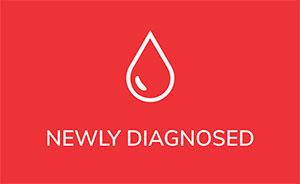Home » Newly Diagnosed » Basic Biology of CLL
The Basic Biology of CLL and SLL
Receiving a cancer diagnosis of any kind can be overwhelming in and of itself, let alone trying to understand the biology of the disease. We are here to help walk you through that process. We encourage you to try and learn just a little bit at a time, and slowly the big scientific words will become familiar and you will begin to build upon your knowledge. At CLL Society, we believe Smart Patients Get Smart Care! So let’s begin learning about the following:
Learn about the normal structure and function of the white blood cells (lymphocytes) that become cancerous in CLL and SLL.
Discover where these cancerous white blood cells can be found beyond just the blood, namely in the bone marrow, the lymph nodes, and the spleen.
Understand the difference between chronic versus acute leukemias.
Read some of the articles we’ve curated for you.
It’s okay to read them one at a time and take a break here and there. You don’t need to learn everything in one setting. In fact, the more you come back to do more reading, the more you will build upon your knowledge
- What is CLL (Chronic Lymphocytic Leukemia) and What is SLL (Small Lymphocytic Lymphoma)?
- What is Leukemia?
- What is Lymphoma?
- What’s in a Name… or Two Names?
- What is the Difference Between a Chronic and Acute Leukemia?
- Where Did it Come From?
- What are Lymphocytes?
- What About Clones and Subclones?
- Introduction to Immunity Part 1
- Introduction to Immunity Part 2
- Introduction to Immunity Part 3
- Introduction to Immunity Part 4
 Learn about the normal structure and function of the lymphocytes that become cancerous in CLL / SLL.
Learn about the normal structure and function of the lymphocytes that become cancerous in CLL / SLL.
Learn more about where we find them beyond the blood stream, namely in the bone marrow, the lymph nodes, and the spleen.
ADDITIONAL READING

RECENT NEWS
When appropriate, the CLL Society will be posting updates and background information on the present Coronavirus pandemic focusing on reliable primary sources of information and avoiding most of the news that is not directly from reliable medical experts or government and world health agencies.
















